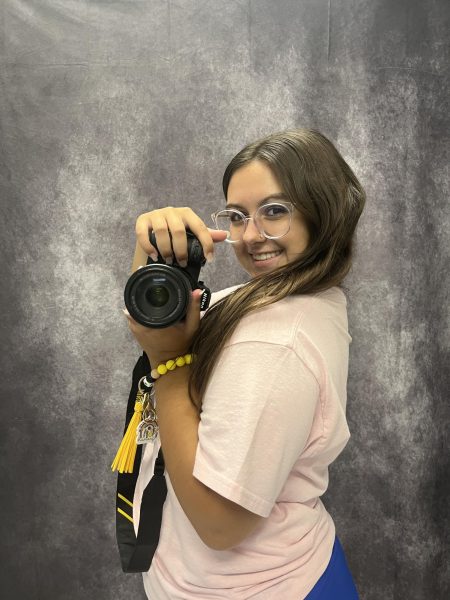Scholastic journalism emphasizes authenticity, telling real, honest stories. It cultivates skills for expression, activism, and empowerment, illuminates essential events, and serves as a foundation for social change, uplifting many voices and shaping the future. In the shifting world of scholastic journalism, sincerity is an unwavering pillar.
The motto “Everything we write is real and raw, you can’t sugarcoat the truth” resonates throughout our area, highlighting our dedication to storytelling authenticity. With that, deadlines loom large, tossing shadows of pressure and limitation. These boundaries, like harsh guards, offer the constraints that our pens and keyboards must navigate, testing the strength of our commitment. Despite the constant ticking of the clock and the ever-present threat of criticism, which cuts deep in this area, ripping through our efforts relentlessly, whether positive or negative. Despite obstacles, we find ourselves surrounded by an array of humanity, seeing a diverse range of people. Every interaction, from seemingly small encounters with ordinary people to unexpected connects with with once-in-a-lifetime possibilities, has an impact on our vision of the world.
These events, both everyday and outstanding serve as the raw material for our stories, giving them depth and sincerity. Through the process of scholastic journalism, we cultivate skills that surpass well beyond the realm of media. Writing, research, interviews, photography, and editing are more than simply tools, they are a wide range of talents that create the basis of cognitive power, laying the groundwork for what is to come. Writing becomes more than just a means of communication, it also serves as a tool for expression and activism.
Research becomes an adventure of learning, exposing hidden information and shining light on difficult issues. Interviews develop into intimate conversations, allowing us to raise the voices of those whose experiences would otherwise go unheard. Photography captures brief glimpses into many memories, effectively capturing time and preserving the essence of the human experiences. Editing, with its meticulous devotion to detail, turns raw material into polished content that may inform and inspire.
Scholastic journalism is essentially a source of knowledge in an increasingly complicated and connected world. It brightens educational hallways, keeping students, professors, parents, and the larger community informed and engaged. In an age when misinformation flourishes and truth is frequently hidden by a cloud of lies, scholastic journalism shines a light on information in a continuously changing setting, functioning as an anchor of clarity. It keeps people informed about essential events and important themes, cultivates attentive minds capable of navigating the maze of misinformation, and provides young brains with the critical thinking abilities required to maneuver the shifting terrain of the digital age.
Scholastic journalism is an efficient tool for social change, fostering inclusion and diversity. Student journalists contribute to a more equal discussion by challenging assumptions, tearing down barriers, and raising the perspectives of those who are under-represented. They cast a light on issues of injustice and inequality, fostering empathy and inspiring debates that have the potential to change hearts and minds, both within and beyond the school community, in the pursuit of a more fair and unbiased world. As scholastic journalists, our motivation extends beyond simply telling stories; it is based on a strong belief in journalism’s ability to effect beneficial changes. We have the honor to witness the depths of human experience and share it with those around us.
In times of uncertainty, scholastic journalism serves as a ray of optimism, displaying the enduring power of truth and knowledge. Scholastic journalism appeals to me because of its revolutionary potential. It is a tool for empowerment and change. Witnessing the enthusiasm and dedication of student journalists underlines the crucial effect that our work can have. It’s more than just an extracurricular activity; it’s a calling to strengthen student voices, promote debate, and impact the community’s future.
My support for scholastic journalism remains strong, and I see it as more than just a source of information—it’s a force for positive change in a world of uncertainty.




